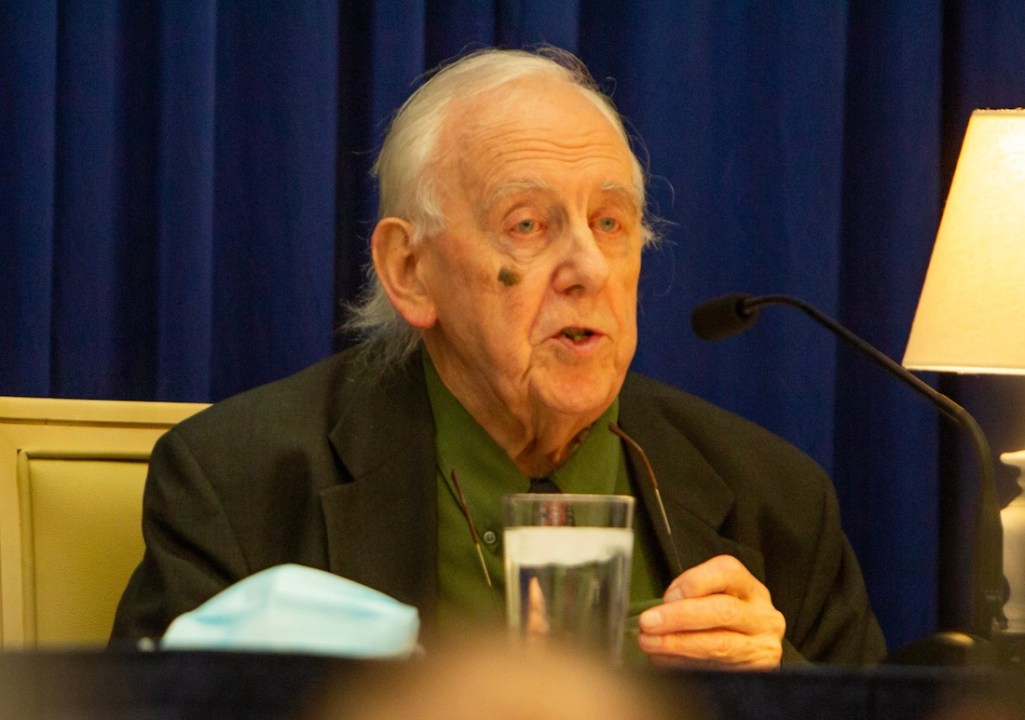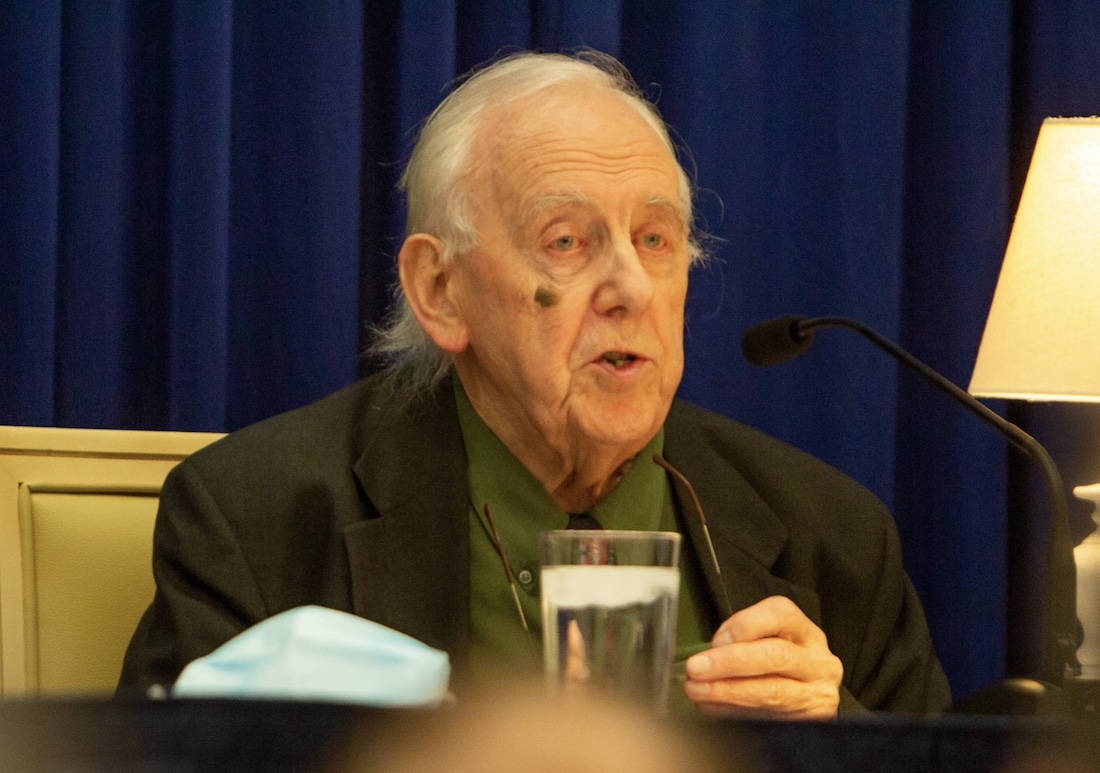Alasdair MacIntyre, who died last week, was one of the most influential thinkers of the past 50 years. It is hard to think of any other philosopher writing in the late 20th-century who has had such an impact. He might be less famous than Foucault or Derrida, but it is his conservative brand of postmodernism that launched a fairly coherent intellectual movement. For a few decades its adherents were mostly academics; now it has become politically influential too.
Like those aforementioned Frenchmen, he was a powerful critic of the rational Enlightenment. And like them, his thought was strongly shaped by Marxism, and its critique of liberal political assumptions. But unlike them he decided that it was not enough to be suspicious of all ideologies. The task was to reconstruct meaning, amid the chaos and nihilism of modern thought.
This bold proposal is set out in his book of 1981, After Virtue. The rational Enlightenment has led to a shallow intellectual and moral culture. Though people espouse a vague narrative of liberty and justice for all, they just pursue their own material ends. Individualism has corroded any real shared moral culture. Our main moral discourse is therefore vacuous. A rousing speech about social justice is just a sentimental trick with words, for the audience has no shared sense of how moral lives are formed and nurtured. To make moral discourse substantial again, we have to revive the idea of virtue. This sounds Victorian, but we have to go right back to Aristotle, who knew that morality is rooted in communal practices, a shared tradition. All of modern thought erodes this basis, it enthrones an abstract universalism, rooted in the freedom of the individual. For MacIntyre, only Roman Catholic thought can stand against the liberal tide (he converted around the time of writing After Virtue).
Of course conservative thinkers had criticised liberal individualism for generations, but this critique had a radical aura, stemming from its incorporation of Marx and Nietzsche. Many young intellectuals were impressed by the calm iconoclasm – summed up in his famous dismissal of human rights as no more real than unicorns.
In particular, it excited a few theologians of the 1980s, including Stanley Hauerwas in the US and John Milbank and Rowan Williams over here. It helped them find a new tone of boldness. Ratzinger was also a fan: his choice of papal name was surely influenced by the last line of After Virtue: what the word needs now, said Macintyre, is a new St Benedict, re-rooting morality in counter-cultural practices.
About 20 years ago, this theological movement was still attracting intellectuals, but had little impact beyond universities. Its anti-liberal polemic also found a few non-religious advocates, including the philosopher and journalist John Gray (another former Marxist). Then it made a surprising bid for political influence. It inspired the Red Tory movement that briefly attracted David Cameron, and continued to exert mild influence under the label ‘postliberalism’.
MacIntyre was one of the most influential thinkers of the past 50 years
Then its influence in the US stepped up even further: Rod Dreher’s debt to MacIntyre is evident in the title of his book of 2017: The Benedict Option: A Strategy for Christians in a Post-Christian Nation. The following year Patrick Deneen wrote a re-hash of After Virtue called Why Liberalism Failed. Both books contributed to the conversion of J.D. Vance.
In other words, MacIntyre inspired a new wave in theology and political theory that swept all before it. Even those who have tried to question this tide, including me, must admit its intellectual virtues. There was a need for a bracing rejection of flimsy liberal assumptions, especially in theology, where a vague rational humanism had dominated for generations.
But the tide remains questionable. My problem with MacIntyre and his followers is that, in pursuit of theoretical coherence and radical edge, they denigrate what should not be denigrated. I mean the core political tradition of the West, which, for all its faults, has protected people’s liberty, as well as delivering large doses of peace and prosperity. To sneer at the tradition of the liberal state strikes me as rather bad form. And many of these postliberals flirt with the idea that pluralism should be replaced by a new version of theocracy, or ‘unitary theopolitics’ (which they claim would somehow be magically less oppressive than previous forms). This seems irresponsible. And ungrateful: we should continue to honour the seventeenth-century revolution that opposed theocracy in favour of a new politics that protected religious freedom.
And yet I largely agree that liberal modernity has produced a shallow, hollowed-out culture, in which individualism rules supreme and crass hedonism goes almost unopposed. Having pondered this dilemma for years, I now see the need to distinguish the liberal state, or political liberalism, from ‘liberalism’ in a wider sense – a vague secular ideology that enthrones the principle of individual choice. I am grateful to MacIntyre and his followers helping me to see the dodgy power of the latter creed.









Comments